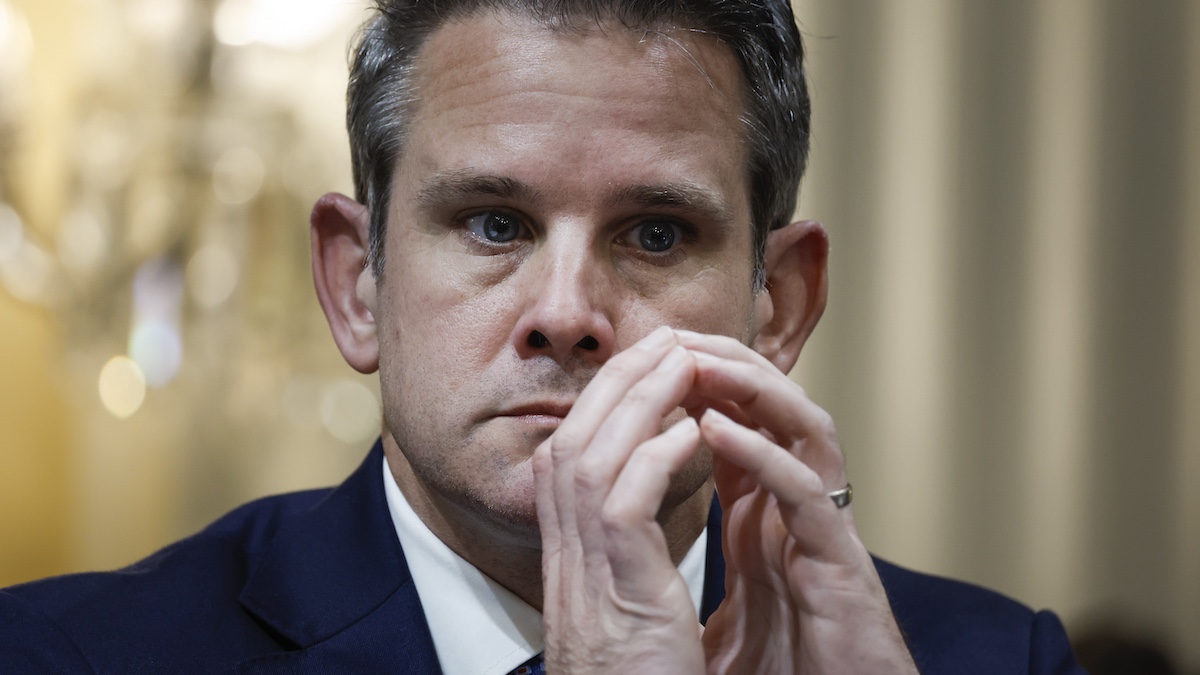
Former Republican congressman and full-time Donald Trump critic Adam Kinzinger is sounding the alarm. His target: U.S. consular policy that some critics are calling a gross invasion of privacy.
The policy, now appearing on official embassy websites, instructs applicants for F, M, or J nonimmigrant visas—typically student and exchange visitor visas—to make all social media accounts public to facilitate identity vetting under U.S. immigration law.
The U.S. Embassy’s official notice reads: “Effective immediately, all individuals applying for an F, M, or J nonimmigrant visa are requested to adjust the privacy settings on all of their social media accounts to ‘public’ to facilitate vetting necessary to establish their identity and admissibility to the United States under U.S. law.”
Kinzinger’s response? “This is UNACCEPTABLE AND INSANE.”
Kinzinger vs. MAGA surveillance state
JD Vance says “Europe has problems” while the U.S. slides into authoritarianism. What’s next for foreigners? Yellow star-shaped badges to show we’re not American? We’ve seen this before. pic.twitter.com/zcVI2Jtq2o
— Shaun Pinner (@olddog100ua) June 25, 2025
For some context, Kinzinger, one of the few Republicans to stand up to Donald Trump following the January 6th insurrection. Since then, he has made a name for himself by calling out authoritarian overreaches. Accordingly, he’s no stranger to breaking party ranks. His service on the House Select Committee investigating the Capitol riot cost him his political career. However, it earned him credibility as one of the last sane voices in the GOP wilderness.
Now, he’s turning his fire on what he sees as a Trump-era surveillance policy creeping back into daylight.
Trump’s digital border wall
Furthermore, while the embassy post is being enforced now, the roots of this policy stretch back to Trump’s “extreme vetting” era. In 2019, his administration implemented rules requiring visa applicants to disclose their social media handles for the past five years. The stated goal? National security. The real effect? Casting a digital dragnet that some experts warned would chill free expression and unfairly target Muslim-majority countries.
And this latest embassy directive takes things even further—not only must applicants disclose their accounts, they must also strip away all privacy protections. Applicants are essentially being told: If you want to study or teach in America, you must hand over your online life.
That’s not vetting. That’s surveillance theater.
Privacy, discrimination, and hypocrisy
Will this be one of the next things inside the US? "Let me see your phone."
— Southern(@NavyVet135) June 25, 2025
Civil rights organizations like the ACLU have long warned about the discriminatory nature of social media screening. The hypocrisy isn’t lost on critics. The same Republicans who scream about Big Tech censorship are now cheering on Big Brother at the border, demanding that international students expose their DMs for Uncle Sam.
The bigger picture
Whether this policy remains in place may hinge on who wins in November. But while the Biden administration has eased other Trump-era immigration tactics, this particular rule seems to have slipped through the cracks—or worse, is being quietly tolerated. For Kinzinger, that’s not acceptable.
With the world watching America’s treatment of international students and scholars, Kinzinger’s outrage may be just the beginning of a broader pushback against policies that sacrifice privacy in the name of paranoia.









